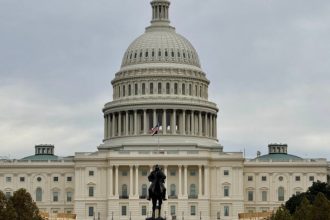As the economic landscape evolves, economists at top financial institutions are weighing in on the future of U.S. interest rates. Morgan Stanley economists project the Federal Reserve will commence a series of interest-rate reductions beginning in June 2024. These cuts are expected to come in 25-basis point increments, eventually bringing the policy rate down to 2.375% by the end of 2025.
The forecast from Morgan Stanley also includes an anticipated peak in unemployment at 4.3% in 2025, alongside slower growth and inflation rates than those projected by officials. Furthermore, they foresee a gradual phase-out of quantitative tightening starting next September, lasting until early 2025, with Treasury runoff caps being lowered by $10 billion each month.
In contrast to Morgan Stanley’s outlook, Goldman Sachs predicts that the first rate cut will not occur until the fourth quarter of 2024. They expect this to be followed by a consistent pace of reduction, with one cut per quarter extending through mid-2026. This would amount to a total decrease of 175 basis points, setting the target range at 3.5%-3.75%. Goldman Sachs’ projection is based on the end of post-financial crisis headwinds and ongoing significant budget deficits.
Additionally, while Morgan Stanley does not anticipate a recession despite foreseeing a need for more monetary easing due to a weaker economy, Goldman Sachs expects the Fed to maintain relatively higher rates because of a higher equilibrium rate.
Market participants are aligning more closely with Goldman Sachs’ perspective; by the June FOMC meeting, they predict the first rate cut will take place, followed by two additional cuts. This would establish a final Fed Funds rate range of 4.50% to 4.75% by December 2024. Bank of America economists also suggest there might be one more rate hike before three subsequent cuts of 25 basis points each from the second quarter of 2024 onwards.
The Federal Open Market Committee’s (FOMC) own projections from September anticipate a single annual cut of 25 basis points, leading to a Fed Funds rate drop to 5.125% by the fourth quarter of 2024.
As these various predictions highlight differing views on how the U.S. economy will perform and how the Federal Reserve might respond, investors and policymakers alike will be watching closely for signs that could confirm or challenge these forecasts.
This article was generated with the support of AI and reviewed by an editor. For more information see our T&C.
Read the full article here





